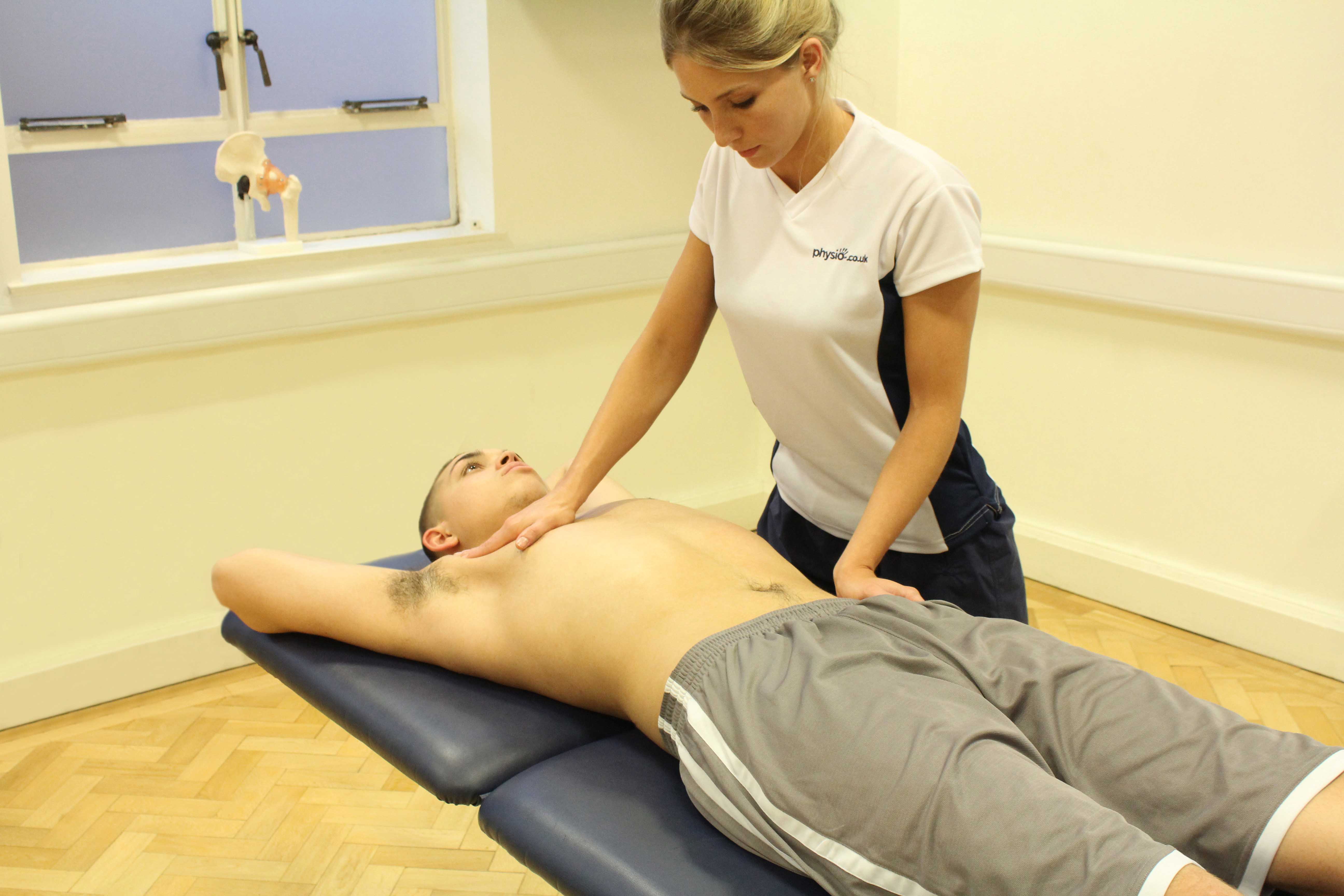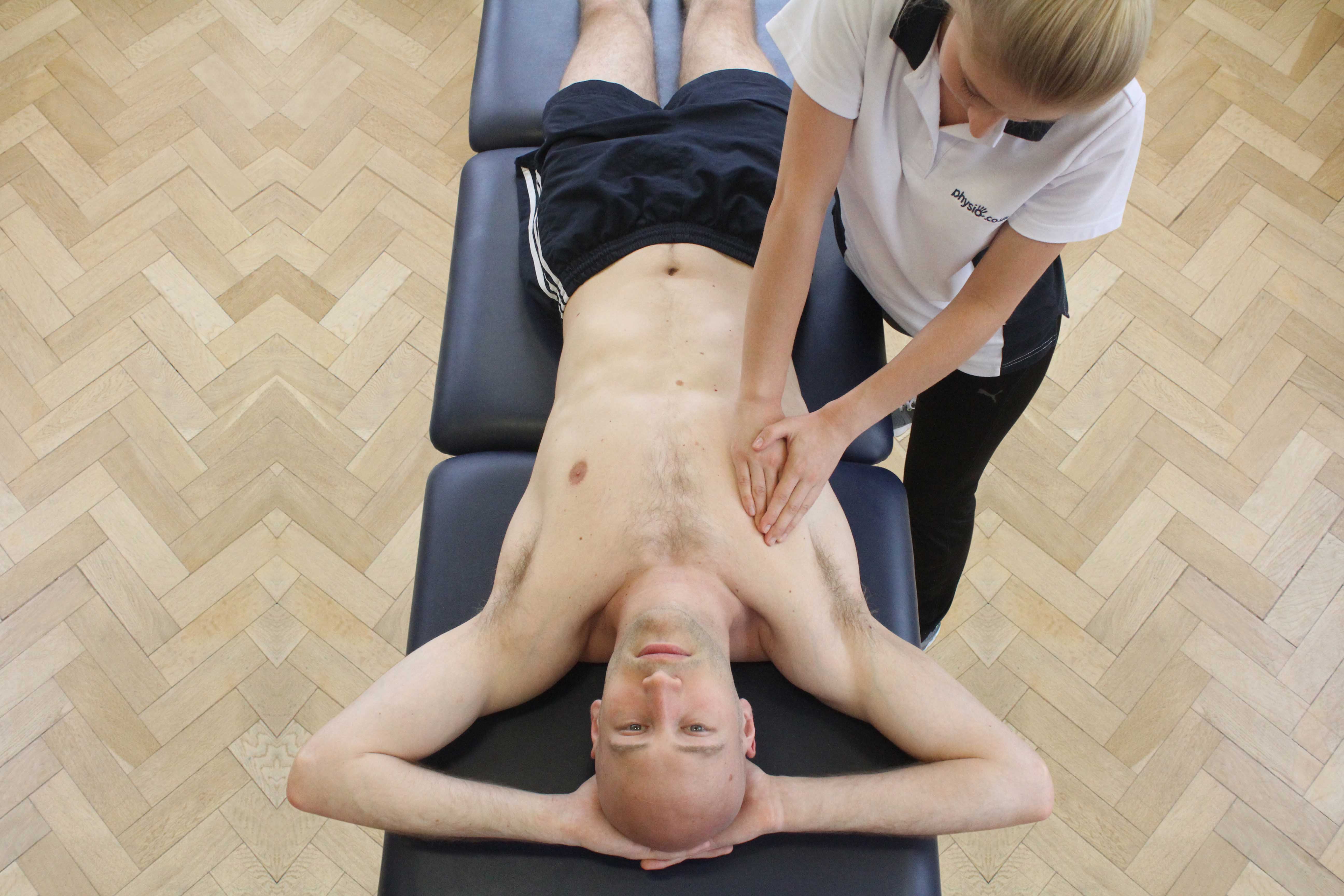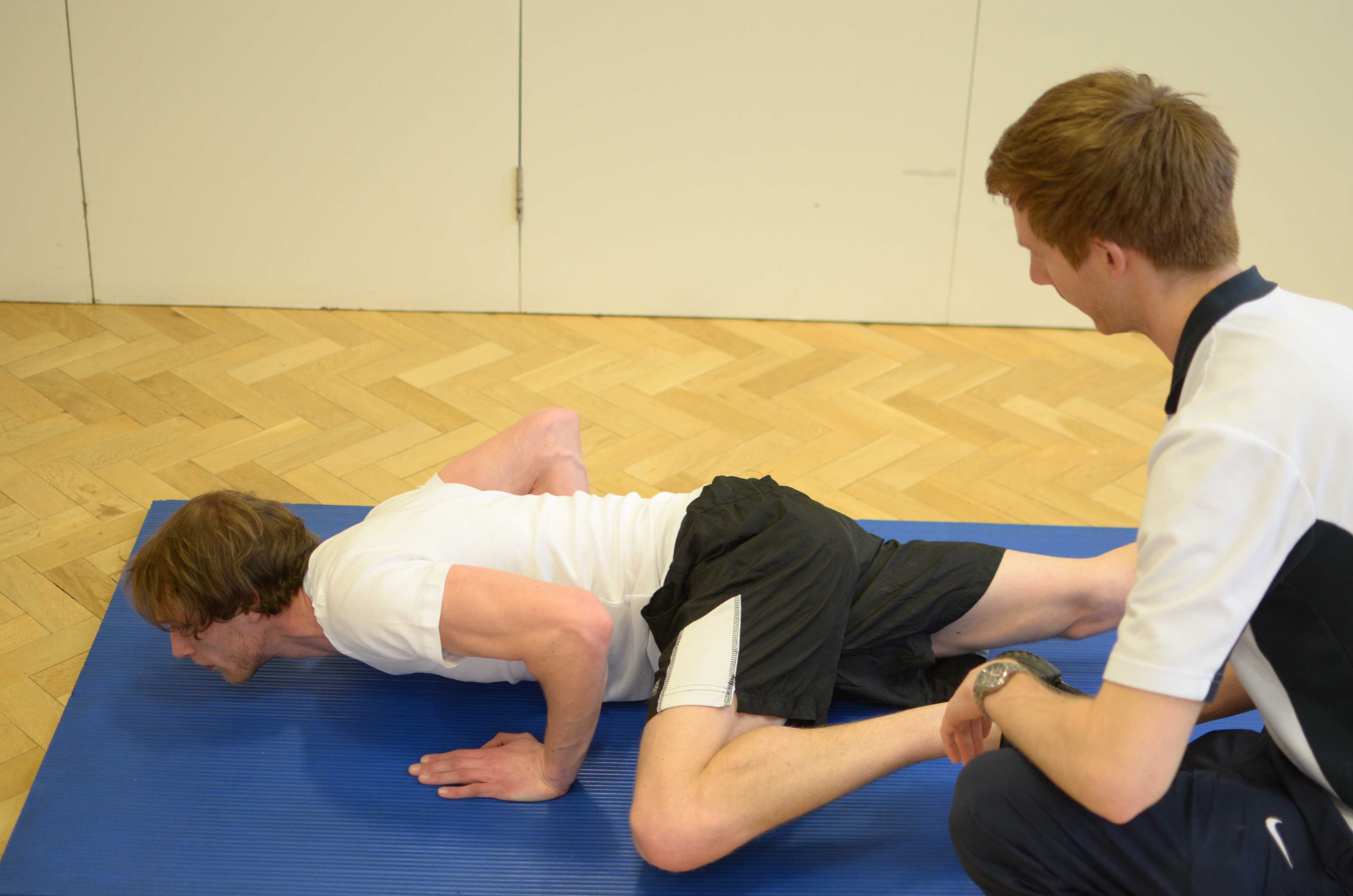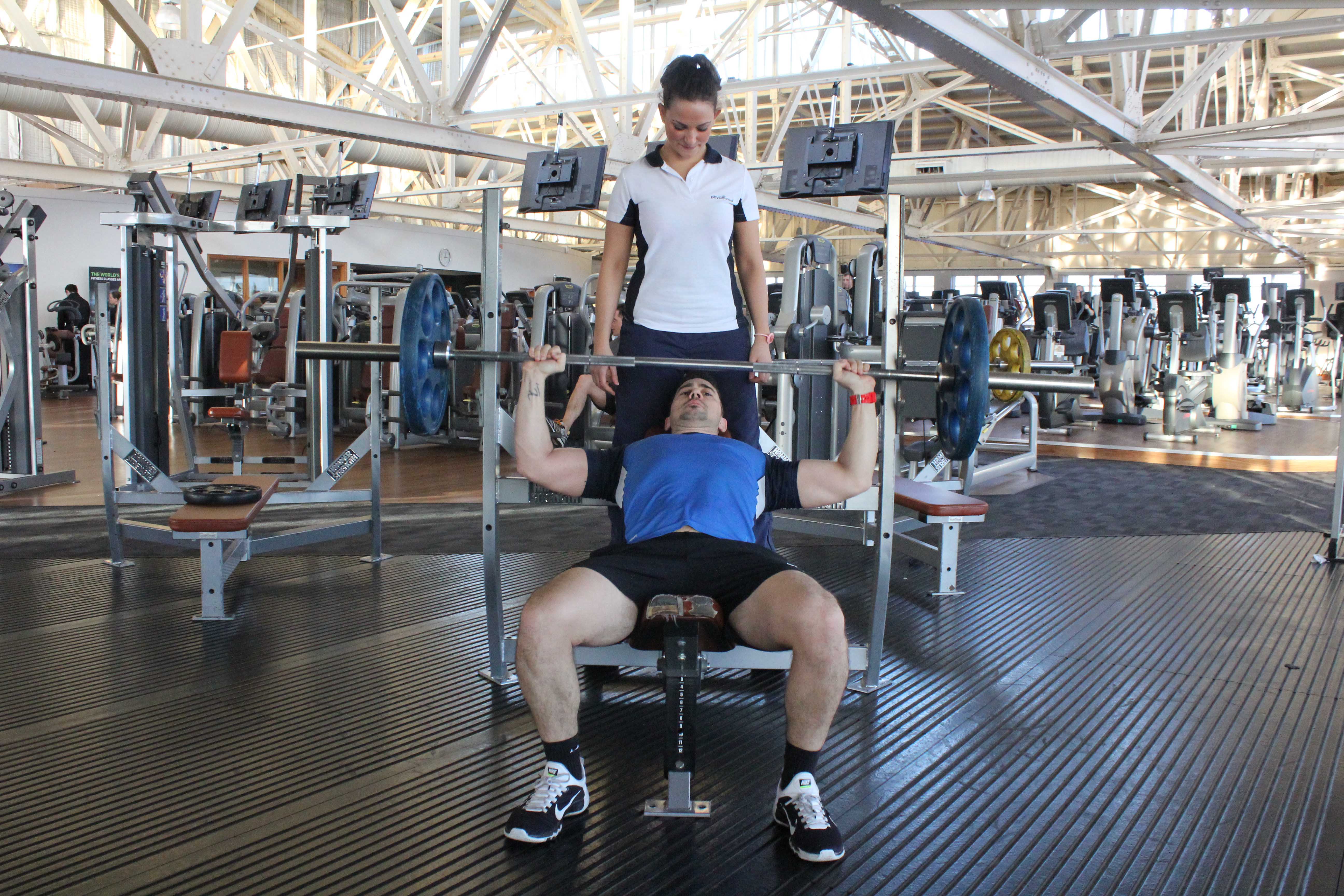What is a pectoralis major strain?
A pectoralis major strain is a tear in the main muscle across the front of the chest, commonly known as the ‘pec’. Physiotherapy can treat symptoms of pectoralis major strain.
 Above: Passive stretch applied to chest muscels by experienced therapist
Above: Passive stretch applied to chest muscels by experienced therapistHow does a pectoralis major strain occur?
A pectoralis major strain typically occurs when pushing a heavy object away from your chest. This can occur during weight training when performing bench press exercises. During bench press, large forces the muscle is required to generate to lift and lower the bar, combined with an overstretching of the muscle, can place too much stress on the pectoralis major. This can cause the pectoralis major muscle to tear.
 Above: Soft tissue massage of the chest muscles by specialist therapist
Above: Soft tissue massage of the chest muscles by specialist therapistWhat are the symptoms of a pectoralis major strain?
The first sensation felt when the pectoralis major muscle is torn is sudden pain. This pain is usually felt at the front of the armpit and is sometimes felt across the chest. At the same time you may also feel something ‘tearing’ in your chest. In minor tears you may be able to continue participating with slight pain. However, as the muscle cools down, pain may gradually worsen as bleeding and swelling around the injured muscle takes place. The pectoralis major often becomes tight and stiff.
Other symptoms include:
What should I do if I have a pectoralis major strain?
The most important time in the initial treatment of a pectoralis major strain is the first 24–48 hours. This is when the majority of the bleeding and swelling around the injured muscle occurs. To control the amount of swelling and, therefore, limit the degree of damage to the pectoralis muscle, the muscle should be rested and iced. Rest involves limiting the use of the injured arm. Ice should be applied to the injured site for 15–20 minutes every 1–2 hours. Ideally, using crushed ice wrapped in a moist cloth. Whilst completing this you should ensure that you contact your physiotherapist.
 Above: Progressive strength training for the chest muscles supervised by specialist MSK physiotherapist
Above: Progressive strength training for the chest muscles supervised by specialist MSK physiotherapistPhysiotherapy treatment for a pectoralis major strain.
Physiotherapy is very important in the treatment of a pectoralis major strain. Initially, your physiotherapist can advise you on the exact tissue/s damaged and the extent of this damage. This is particularly important if you have a complete tear of your pectoralis major muscle as you may require a referral to an orthopaedic surgeon or radiologist. Following your assessment, your physiotherapist can advise you on how long your injury is expected to take to heal and an appropriate treatment plan can be developed. Treatment may include:
What shouldn’t I do if I have a pectoralis major strain?
In the first few days following a pectoralis major strain you shouldn’t undertake activities which increase blood flow to the injured muscle. These include hot showers, pectoralis stretching, heat rubs, massage, the consumption of alcohol and excessive use of the arm. These can prolong muscle bleeding and exaggerate swelling resulting in further pain and an extended recovery.
 Above: Progressive strength training for the chest muscles supervised by specialist MSK physiotherapist
Above: Progressive strength training for the chest muscles supervised by specialist MSK physiotherapistCould there be any long-term effects from a pectoralis major strain?
Most pectoralis major strains heal without complication, within a matter of weeks. However, a proportion of injuries can result in longer-term effects, depending on the severity of the injury and the extent of damage. Complete tears of the muscle usually require surgery to reunite the torn ends of the muscle. If a complete tear is not diagnosed and addressed early, it may prolong your recovery. Similarly, in more minor tears, recovery may be prolonged if the tear is not appropriately managed. This may result in a tight, weak pectoralis major muscle which is prone to reinjury when you return to participation.
To arrange a physiotherapy appointment call Physio.co.uk on 0330 088 7800 or book online.

 0330 088 7800
0330 088 7800





































